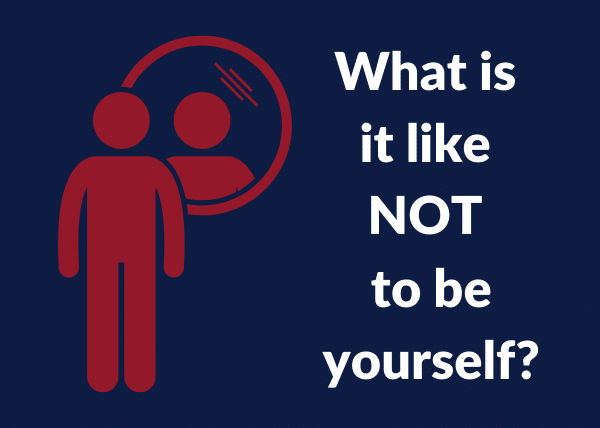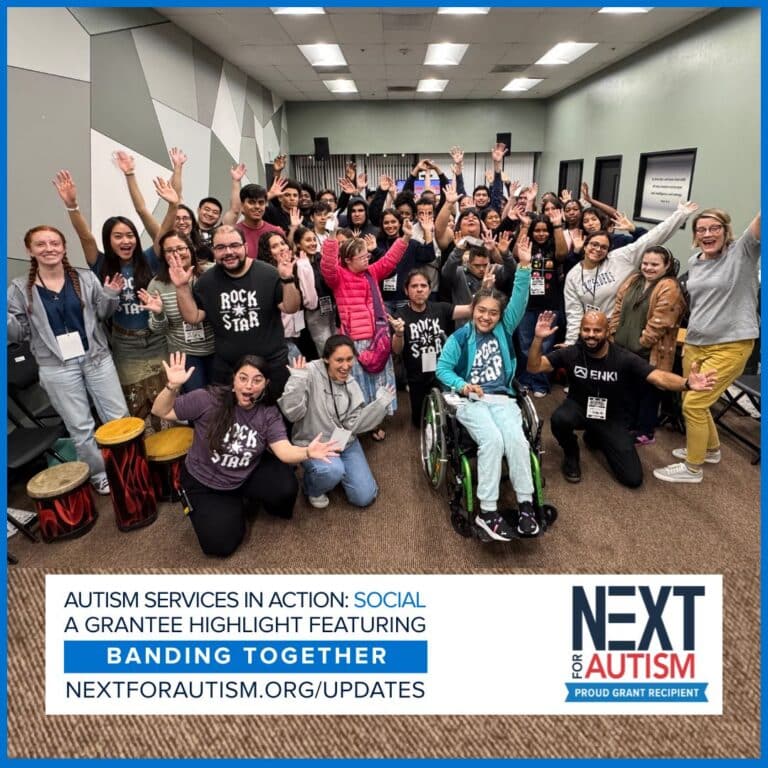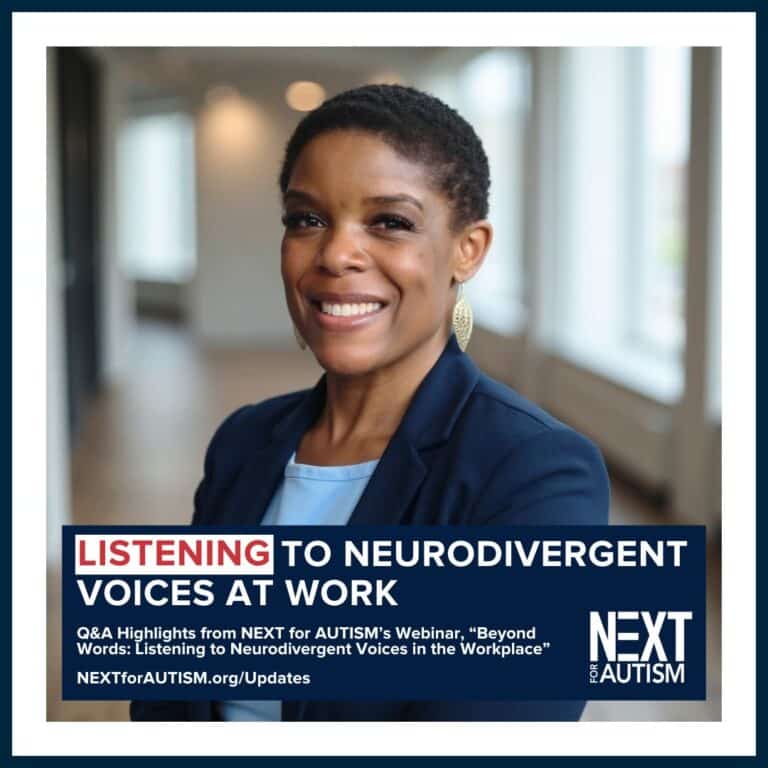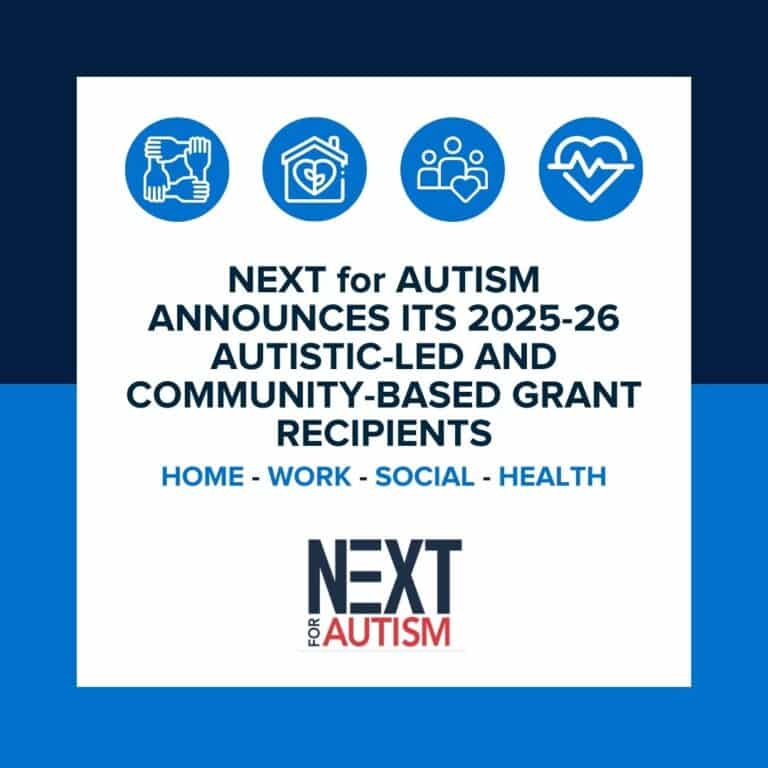By Patricia Wright, MPH, Senior VP Program Development,
NEXT for AUTISM
COVID-19 social distancing has caused all of us to redefine what it means to be social and it has not been comfortable. An act as natural as socializing is now weighted with complex calculations. We now have to navigate social rules that feel unfamiliar and are difficult to remember. Going out and interacting with others can be a daily stressor. Many of us now associate socializing with discomfort, and what I hope this might mean is that we will begin to understand what social discomfort feels like for people with autism on a daily basis as they navigate our typical, social landscape.
SOCIAL MASKING & CAMOUFLAGING
As a professional who has supported many individuals with ASD to develop social skills in order to achieve their personal and professional goals and as a friend of several people with ASD, I am reminded of how challenging it is for people on the spectrum to master social skills when they often just do not make sense. “Why do I have to look at someone when they are talking to me?” they’d ask. “I can hear with my ears not my eyes.” In work settings, they puzzle over social interactions like making small talk when to them, the sole reason that they are there is to work.
To manage the norms of typical society, many people with autism resort to camouflaging. This is a social masking behavior associated with autism where an individual will act in expected ways in order to adhere to acceptable behavior, masking their discomfort and suffering from exhaustion and severe stress as a result. What the rest of us do naturally in a social situation induces constant mental pain for individuals with autism.
AUTISTIC BURNOUT
Individuals on the spectrum have increasingly reported autistic burnout. This is described as intense physical, mental or emotional exhaustion that results mainly from the cumulative effect of having to navigate a world designed for the neurotypical, a world where subtle language and indirect cues require decoding, where the need to be social is an ongoing stress, and where bright lights and ambient noise induce sensory overload.
Hiding your true self and the negative effects that this has on health has a history in other cultures as well. In communities of color, maintaining one’s personal safety in a society that makes wrongful assumptions requires a high level of vigilance that can be exhausting. In the LGBT community, where masking has been deeply embedded, research has shown that coming out of the closet can reduce stress and result in a happier, healthier life. For neurotypicals, grappling with the new social norms required during the pandemic is providing a window into the mental health challenges experienced by the neurodiverse among us who struggle everyday with how to manage in our world.
What is it like to not be yourself? Here at NEXT for AUTISM we’ve been trying to find silver linings during these difficult times where we can. A glimmer of silver on my horizon is that understanding the challenges of navigating unfamiliar social situations will produce compassion and empathy for those who experience the world from a neurodiverse perspective. Personal experience is a wonderful teacher. It moves us from sympathy to empathy, and perhaps from awareness to acceptance. A silver lining, indeed.








Leave a Reply